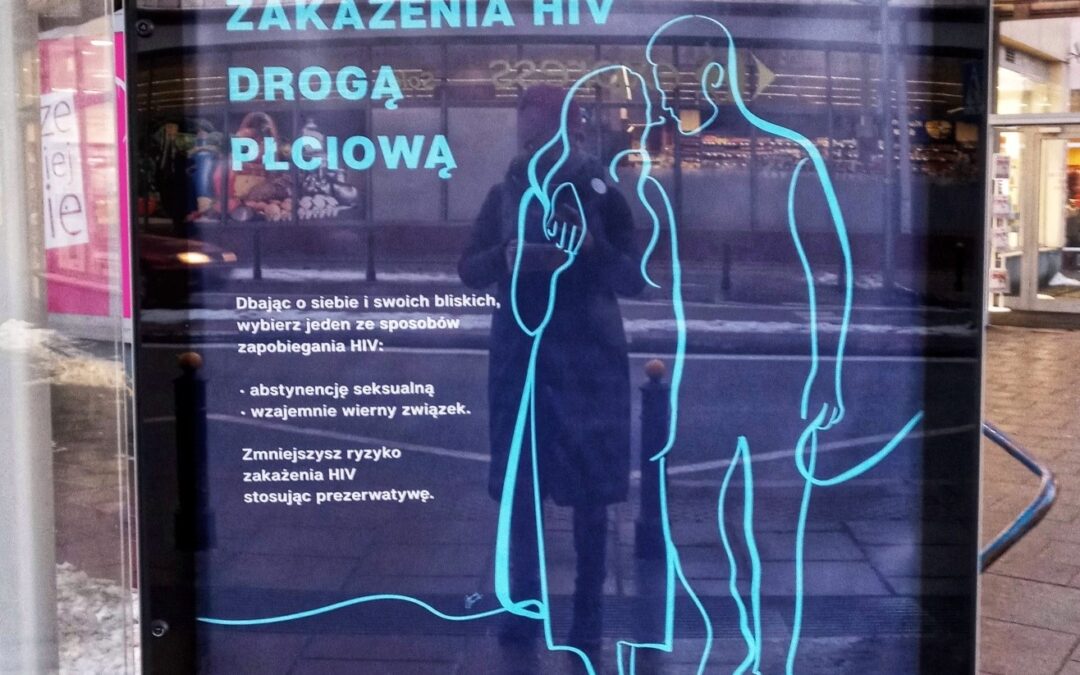The Polish government is encouraging sexual abstinence and fidelity as the main ways to prevent the spread of HIV.
A poster published by the health ministry says that, “to care for yourself and loved ones, choose one of the methods of preventing HIV”. It then lists only two methods: “sexual abstinence” and “a mutually faithful relationship”.
The recommendations have been criticised as outdated and incomplete by a foundation that promotes sex education in Poland.
The poster is published by the National AIDS Centre, an agency operating on behalf of the health ministry. It is part of a campaign called “Did you know that…”, which is designed to promote basic knowledge about HIV and tackle misconceptions.
Among the other posters is one informing the public that they cannot catch HIV from dogs, cats and other animals, and that you cannot tell if someone has HIV from the way that they look.
However, Anna Jurek – an educator from Spunk, a foundation that promotes “modern education”, including about sex – criticises the poster promoting abstinence and fidelity as the primary methods of avoiding HIV. Only further below does it mention that using a condom can reduce the risk of transmission and that testing can identify the virus.
“I had the impression that I was looking at a poster from the 1950s,” Jurek told Gazeta Wyborcza. “It feels like old-fashioned science…Advocating abstinence in the context of preventive health care is impractical nowadays.”
“The recommendation of sexual abstinence is ridiculed by teenagers in classes and many adults, who derive joy from sex and build closeness and intimacy with it,” she continued. “Sex is good if we approach it wisely and we care about the safety of ourselves and the other person.”
Jurek added that encouraging sexual fidelity would only protect couples from infection if they had been tested before beginning a relationship.
She argues that the poster should advise people to be tested for HIV and other sexually transmitted infections before entering a sexual relationship, and to ask partners if they have also been checked.
Abstinence should not be mentioned at all, and the advice about wearing a condom should at the top of recommended measures, in line with international campaigns, she says.
The National AIDS Centre says that, as of the end of 2019, over 25,000 people were infected with HIV in Poland and that almost 1,500 have died since the start of the HIV epidemic in the 1980s.
In 2019, Poland was listed as one of the top ten countries with the biggest increases in new HIV diagnoses between 2010 and 2018.
Poland is among the top 10 countries with the biggest increases in new HIV diagnoses.
Via @POLITICOEurope: https://t.co/u2XP8172oI (h/t @AnSaoiSaonta) pic.twitter.com/jZg4TMCGjo
— Notes from Poland 🇵🇱 (@notesfrompoland) October 26, 2019
Main image credit: Spunk Fundacja Nowoczesnej Edukacji/Facebook

Juliette Bretan is a freelance journalist covering Polish and Eastern European current affairs and culture. Her work has featured on the BBC World Service, and in CityMetric, The Independent, Ozy, New Eastern Europe and Culture.pl.




















